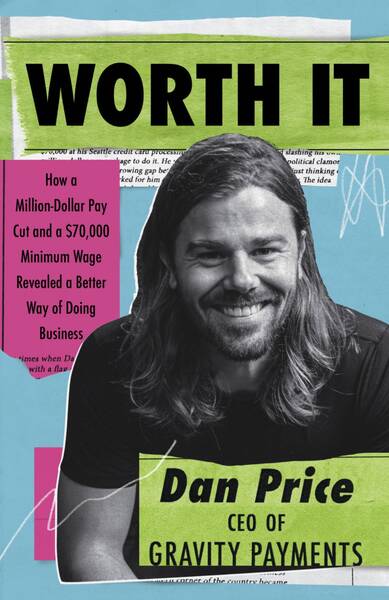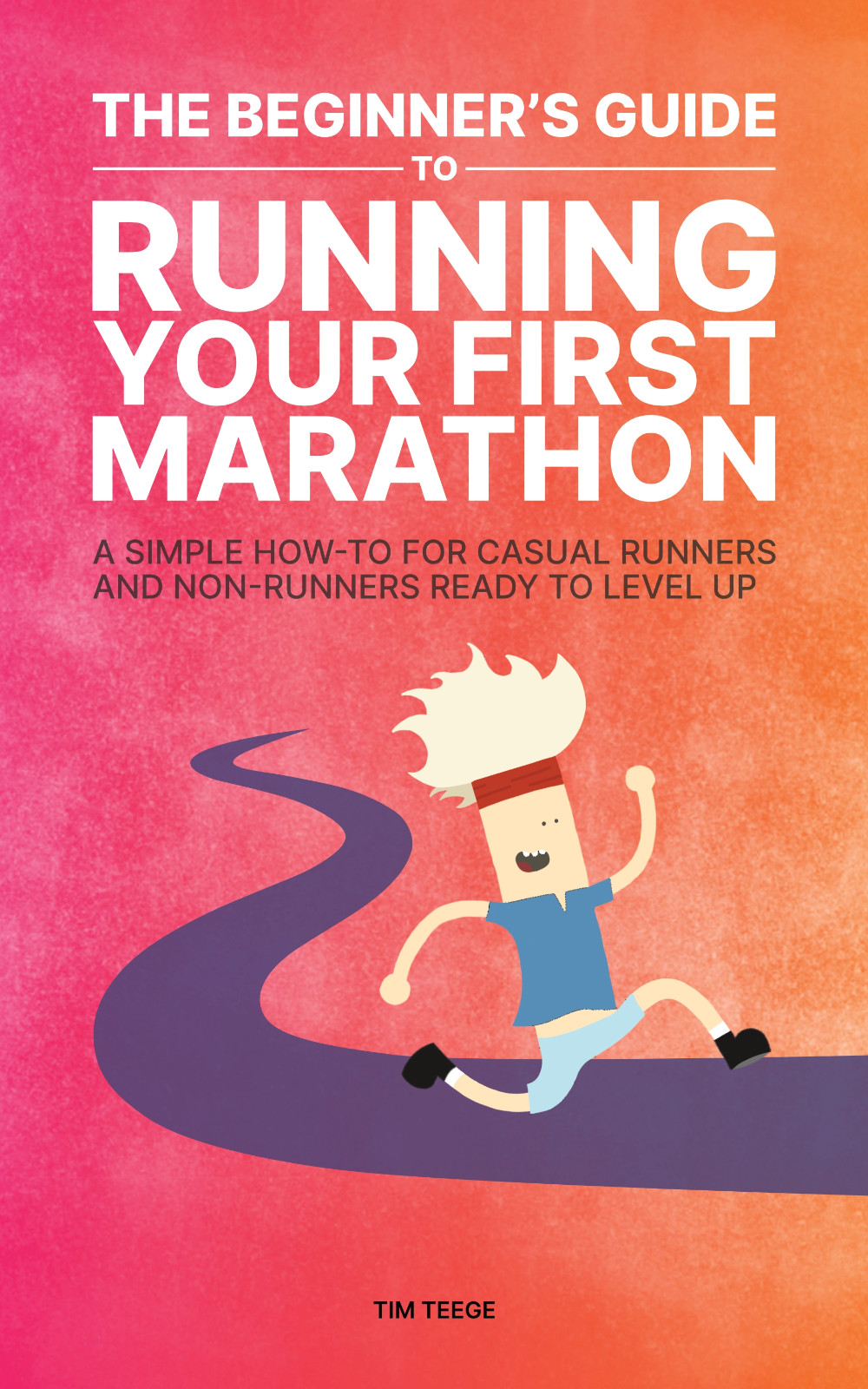🚀 The Book in 3 Sentences
- Paying every worker a fair living wage is the right thing to do and every company should prioritize it not just for ethical reasons, but because of the positive economic consequences as well.
- The business world is constantly changing and being the first to start a new thing is tough.
- Change has to come from small and brave businesses, because the incentives aren’t aligned for governments and huge corporations to enough action and display courageous behavior.
🎨 Impressions
It’s an autobiography of an interesting journey through the creation and growing of a company with an appendix of helpful tips and tricks regarding the creation of better working conditions for your employees. Dan Price is the type of guy who seems to be fun to hang out with but also is taking life’s challenges particularly seriously. A born leader with enough courage to go against the current in order to reach a higher goal.
🍀 How the Book Changed Me
- As I think I’m sharing some ideas about building a fair company with the author, it was particularly good to hear that the headwinds you have to go through when doing something unusual will be “worth it”.
- The appreciation the employees of the CEO showed towards him inspired me to take more action and confirmed that I’m on the right path even if the appreciation isn’t always shown to me. It’s certainly there.
- It’s an uphill battle to improve general working conditions for the majority of people and there’s no clear end in sight. You will have to keep fighting for the right thing indefinitely and take the fall if it fails as a CEO. Talking about it publicly will generate more good than bad responses, so I might need to start in order to have an impact as well.
✍️ My Top 3 Quotes
- [..] we cite others’ behavior as an excuse for our own. As a result, we often end up as part of a system and adopt a philosophy we don’t believe in.
- “Begin with the end in mind,” encourages readers to ask themselves, “What is the one goal you would give up everything else to accomplish?”
- Shouldn’t we come down on the side of making things better for the most people rather than making sure only certain people are happy?
📔 Highlighted Passages
The Hike
- Ever since the 1970s, when economist Milton Friedman put forth the idea that a company exists to maximize shareholder value, executives have adopted this philosophy as gospel.
- we cite others’ behavior as an excuse for our own. As a result, we often end up as part of a system and adopt a philosophy we don’t believe in.
- When we separate our personal values from our professional ones, we give up one of the most powerful tools at our disposal to effect real change.
- My best advice for leaders who want to be more effective is to never take advice. Yes, it’s important to gather information and facts in order to make responsible decisions, and there is often great value in hearing the opinions and experiences of others. But true leaders need to follow their instincts and do what they think is right, even if it flies in the face of the well-intentioned advice of others.
- Employees are drawn to leaders who hold values compatible with their own and are willing to bring these values to bear in their businesses. The time is ripe for experimentation.
My First Mentor
- The second habit, “Begin with the end in mind,” encourages readers to ask themselves, “What is the one goal you would give up everything else to accomplish?”
- My parents, especially my father, believed that earthly possessions and money were signs of devotion to God.
- their emphasis on thinking for oneself and constantly learning would ultimately lead each of us to develop our own ideas about how to live and what it means to be successful.
Building Gravity
- By opting out of the financing rat race early in Gravity’s life, I unknowingly created a competitive advantage for us that would endure.
A New Purpose
- Once the majority of people at Gravity understood and adopted the “be your own CEO” mentality, our tempo increased rapidly, since people stopped asking for permission.
The Decision
- Would our clients benefit more from higher-paid support personnel or from $10 extra per month?
- Not only was the $70k decision the right thing to do for Gravity, but it was proving to be a major step toward my goal of influencing other businesses by championing purpose- driven leadership.
- After several more weeks of conversation, Tammi accepted our offer to come work at Gravity.
Backlash
- Shouldn’t we come down on the side of making things better for the most people rather than making sure only certain people are happy?
- Everyone was still so stunned by the news that they weren’t ready for my solution. They needed time to process the information.
Gifts
- The CFO says to the CEO “We’re paying lots of money to invest in our employees. What if they decide to leave?” The CEO thinks about this statement for a moment and then replies. “But what if we don’t invest in them, and they stay?”
- The old ways are so entrenched, the profit-driven mentality so pervasive, that going against the grain requires not only a shift in perspective but also a healthy appetite for risk and ridicule.
- [Gotten a new Tesla Model S as a gift from his employees] For me, it was the ultimate vehicle. I am constantly battling my excitement over expensive luxuries in the interest of using my money toward more worthwhile pursuits.
Rewards
- The fact that Gravity is supposedly upending the traditional economic model terrifies those who have spent lifetimes clinging to a self-serving illusion of the perfect market theory.
A New Test
- While most people try to get the best financial outcome for themselves in such a sale, Phil put the welfare of his team ahead of his own windfall.
Appendix I
- MIT Living Wage Calculator, which can be accessed online at livingwage.mit.edu.
- Taking all of this into account, you should add about 20 to 30 percent to the figures provided by the MIT calculator when determining a living wage for your area.
- At Gravity, we often reference the work of Daniel Pink, whose book Drive discusses what really motivates people to work hard.
- If your organization is large, consider arranging a town hall–style meeting or two in which people can share ideas, opinions, and concerns directly with executives and any other decision makers.
Book Recommendations
- Can American Capitalism Survive?: Why Greed Is Not Good, Opportunity Is Not Equal, and Fairness Won’t Make Us Poor by Steven Pearlstein.
- Dark Money: The Hidden History of the Billionaires Behind the Rise of the Radical Right by Jane Mayer.
- Drive: The Surprising Truth about What Motivates Us by Daniel H. Pink.
- The End of Loyalty: The Rise and Fall of Good Jobs in America by Rick Wartzman.
- The Good Jobs Strategy: How the Smartest Companies Invest in Employees to Lower Costs and Boost Profits by Zeynep Ton.
- On the Clock: What Low-Wage Work Did to Me and How It Drives America Insane by Emily Guendelsberger.
- Saving Capitalism: For the Many, Not the Few by Robert B. Reich.
- The Vanishing Middle Class: Prejudice and Power in a Dual Economy by Peter Temin.
- Winners Take All: The Elite Charade of Changing the World by Anand Giridharadas.


Leave a Comment